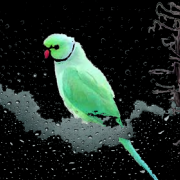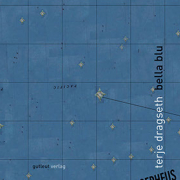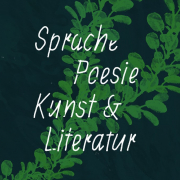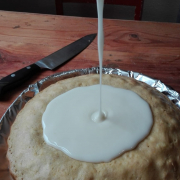Von und mit Jayde Will
Übersetzung ist so viel mehr als nur Worte
 Jayde Will, © Astrid Nischkauer
Jayde Will, © Astrid Nischkauer
Es scheint einen besonderen Bereich im Gehirn zu geben, den wir poetisches Gedächtnis nennen könnten, und wo alles gespeichert wird, das uns bezaubert oder berührt, das unsere Leben schön macht. Das ist ein Zitat aus Die unerträgliche Leichtigkeit des Seins von Milan Kundera. Und ich denke, das ist tatsächlich, was mein Interesse an mittel- und osteuropäischer Literatur geweckt hat und mich dazu brachte, selbst Autoren zu übersetzen und auch zu schreiben. Die letzten zwanzig Jahre habe ich im Baltikum verbracht, rund fünf Jahre lebte ich in Estland und mehr als zehn Jahre in Litauen und die letzten vier habe ich in Lettland verbracht. Und für mich war dieses erste Buch eine Einführung in eine komplett neue Welt. Und vielleicht ist das, was mein Leben am meisten geformt hat, die Sowjetzeit. Und das, obwohl ich nicht im Baltikum während der Sowjetzeit geboren wurde, ich wuchs in den USA auf, aber als ich mit neunzehn ins Baltikum zog, war diese Atmosphäre immer noch sehr lebendig, in den späten 1990ern. Und seit ich dort bin, habe ich viele Veränderungen beobachtet, aber es gibt diese Überbleibsel aus der Sowjetvergangenheit immer noch und es beeinflusst die Menschen immer noch. Und durch übersetzte Literatur, durch meine Arbeit als Übersetzer, habe ich versucht, alle diese Auswirkungen des totalitären Systems, welches das Leben der Menschen auseinander riss, zu verstehen. Und in meinen täglichen Interaktionen mit diesen Menschen bringt dich das wirklich dazu, über dein Leben nachzudenken, über das Leben rund um dich, über Veränderung. Dieses Jahr werde ich vierzig und das kam auch noch zu dieser Mischung des Zurückblickens auf das eigene Leben hinzu. Ein Immigrant zu sein und zu wissen, dass wir so viele Schwierigkeiten mit Integration auf der ganzen Welt haben, mit populistischen Politikern, alle diese Dinge beeinflussen mich. Und für mich ist Übersetzung, auch mein Schreiben, ein Weg für mich, mich selbst zu verstehen, die Welt rund um uns zu verstehen. Und ich sage den Menschen immer: das ist es, was Übersetzung kann. Also, es gibt ein wirklich großes Problem mit übersetzter Literatur im englischsprachigen Raum. Übersetzungen machen nur rund drei Prozent des Marktes im englischsprachigen Raum aus. Und ich bin wirklich der Meinung, dass es mehr wie in Deutschland sein sollte, wo – wenn ich mich recht erinnere – Übersetzungen rund 40 Prozent des Marktes ausmachen. Menschen werden dadurch andere Kulturen näher gebracht, andere Ideen, andere Gedanken, andere Sichtweisen auf die Welt. Und ich bin ehrlich der Meinung, dass das etwas sehr Bereicherndes ist. Ich bin einfach überrascht, wenn Menschen keine Übersetzungen lesen wollen, weil das etwas für mich war, das mir ganze Welten eröffnet hat, und etwas, womit ich auch mein tägliches Brot verdiene. Und für mich ist Übersetzung so viel mehr als ein Buch. Es ist mehr als Worte, es ist beinahe wie ein lebendiges, atmendes Wesen. Wir führen dieses Interview hier auf der Frankfurter Buchmesse und es ist wirklich inspirierend, andere Übersetzer zu treffen, andere Autoren. Alle diese Welten prallen aufeinander, vermischen und verbinden sich. Man lernt von anderen Menschen, man lernt andere Perspektiven kennen. Es ist wirklich ein sehr inspirierender Ort. Und ich denke, jeder Mensch braucht Inspiration. Und ich glaube, wenn jemand auch schreiben will, denke ich, sind das die Dinge, die einem auf so vielfältige Weise helfen können und das ist selbst etwas, das ich nicht wirklich in Worte fassen kann. Also wenn du hoffentlich etwas mitnehmen kannst daraus – aus meiner Straßenpredigt – wirst du hoffentlich verstehen: Übersetzung ist so viel mehr als nur Worte.
[Übersetzung: Astrid Nischkauer]
translation is so much more than just words
The brain appears to possess a special area, which we might call poetic memory and which records everything that charms or touches us, that makes our lives beautiful. That’s a quote from The Unbearable Lightness of Being by Milan Kundera. And I think that that’s actually what started my interest in literature from Central and Eastern Europe and also started me on a path towards translating authors myself and also writing. I’ve spent the last twenty years in the Baltic, I spent about five years in Estonia and more than ten years in Lithuania and I’ve spent the last four in Latvia. And for me that first book was an introduction into a whole different world. And perhaps the thing that’s formed my life the most is the Soviet period. And granted I wasn’t born in the Baltic during the Soviet period, I grew up in the United States, but having moved to the Baltic when I was nineteen, this atmosphere was still very much alive in the late 1990s. And since that time I’ve been there, I’ve seen a lot of change go on, but you still have those remnants of the Soviet past and it still affects people. And through translated literature, through my work as a translator, I’ve tried to understand all of those affects of the totalitarian regime that tore peoples’ life apart. And in my daily interactions with these people, that really starts to make you think about your life, about the life around you, about change. I hit forty this year and also that was kind of added into the mixture, you kind of looking back on your own life. Being an immigrant and knowing that we have so many problems with integration all over the world, with populist politics, all of these things affect me. And for me translation, also my writing, that’s a way for me to understand myself, understand the world around us. And I always tell people: that’s the kind of thing that translation does. Well, there’s a really big problem with translated literature in the English-speaking world. Only about three percent of the markets of the English-speaking world are made up of translations. And I really feel that it should be more like it is in Germany, where – if I remember correctly– translations make up about 40 percent of the market. You know, people are introduced to other cultures, other ideas, other notions, other perspectives of the world. And I really honestly think, that that’s a very enriching thing. I’m just surprised when people don’t want to read translations, because for me, that’s been something that’s opened up whole worlds for me, and something I earn my daily bread with as well. And for me translation is so much more than a book. It’s more than words, it’s almost like a living, breathing entity. We’re doing this interview here at the Frankfurt Book Fair and it’s really inspiring to meet other translators, other writers. All of these worlds are colliding, mixing and matching. You learn from other people, you learn other perspectives. It’s really an inspiring place to be. And I think everybody needs to be inspired. And I think that translation, you know, if somebody wants to also write, I think that those are the things that can help people in so many ways and that’s even something I don’t really know how to put into words. So hopefully if you can get anything out of this – me being on my soapbox - hopefully you’ll understand that translation is so much more than just words.
Fixpoetry 2019
Alle Rechte vorbehalten
Vervielfältigung nur mit Genehmigung von Fixpoetry.com und der Urheber
Dieser Artikel ist ausschließlich für den privaten Gebrauch bestimmt. Sie dürfen den Artikel jedoch gerne verlinken. Namentlich gekennzeichnete Beiträge geben nicht unbedingt die Meinung der Redaktion wieder.







Neuen Kommentar schreiben